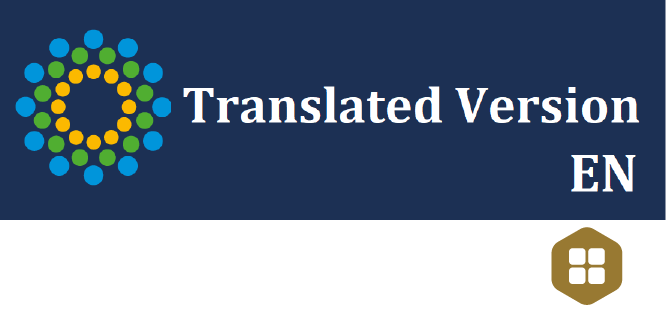“Don’t Bring Me Problems, Bring Me Solutions!” Believe me, they can be found in micro and small enterprises
DOI:
10.14211/regepe.esbj.e2656Keywords:
Micro and small enterprises, Informality and semi-formality, Entrepreneurship, Socioeconomic development, Public policiesAbstract
Objective of the Study: To highlight the central role of micro and small enterprises (MSEs) in overcoming Brazil’s severe socioeconomic inequality, emphasizing the need for them to receive priority treatment in public policies. Main Findings: By emphasizing the often unknown and neglected reality of MSEs, it demonstrates that productivity is the main challenge, as most MSEs operate with extremely low productivity levels in an environment of informality/semi-formality. This exacerbates the country's productivity dilemma, limiting its growth potential and the possibilities to overcome inequality. The study also shows that although both formal and informal MSEs represent the most significant portion of the economy in terms of GDP and employment, they are treated marginally, receiving little attention from the government, academia, and the media in proportion to their economic importance. Relevance/Originality: It provides an original critique of the common view that reduces entrepreneurship to the creation of new businesses, treating it as a panacea for national problems. Instead, it proposes the requalification of existing entrepreneurs and support for innovations that increase the technical content of workstations (modernization of production and management processes), leading to higher productivity and competitiveness for MSEs. Social Contributions: It suggests the formulation of policies of public policies that place MSEs at the core of the agenda, which would foster an inclusive and sustainable development process. Furthermore, it emphasizes the urgent need for more studies on MSEs and informality to properly understand the reality of this vital segment of the Brazilian economy.
Downloads
Translation
References
ASN Nacional – Agência Sebrae de Notícias. (2023). Pequenos Negócios Aceleram Emprego e PIB no País. Brasília: Sebrae Nacional. https://is.gd/C4JvhC.
Brasil. (2024). Portal do Empreendedor. Brasília: Receita Federal Brasileira.
Furtado, C. O Mito do Desenvolvimento Econômico. (1981). 5ª ed. Rio de Janeiro: Ed. Paz e Terra.
Hallak Neto, J., Namir, K. & Kozovits, L. (2012). Setor e Emprego Informal no Brasil: análise dos resultados da nova série do sistema de contas nacionais – 2000/7. Economia e Sociedade, Campinas, v. 21, n. 1, ano 44, abr. 2012. https://doi.org/10.1590/S0104-06182012000100004.
Infante, R., Mussi, C. & Nogueira. M. O. [Eds.]. (2015). Por um Desenvolvimento Inclusivo: o caso do Brasil. Santiago; Brasília: Cepal/Ipea.
IBGE – Instituto Brasileiro de Geografia e Estatística. (2024). Pesquisa Nacional por Amostra de Domicílios – Contínua (Pnad Contínua). Rio de Janeiro: IBGE.
Nogueira, M. O. & Carvalho, S. S. (2021). Trabalho Precário e Informalidade: desprecarizando suas relações conceituais e esquemas analíticos. (Texto para Discussão, No 2707). Brasília: Ipea. https://doi.org/10.38116/td2707.
Nogueira, M. O. & Moreira, R. F. C. (2023). A Covid Deixa Sequelas: a destruição do estoque de capital das micro e pequenas empresas como consequência da pandemia de covid-19. (Texto para Discussão, Nº 2894). Brasília: Ipea. https://doi.org/10.38116/td2894-port.
Nogueira, M. O. & Oliveira, J. M. de. (2014). Uma Análise da Heterogeneidade Intrassetorial no Brasil na Última Década. (Texto para Discussão, Nº 1972). Brasília: Ipea.
Nogueira, M. O. & Zucoloto, G. F. (2019). Um Pirilampo no Porão: um pouco de luz nos dilemas da produtividade das pequenas empresas e da informalidade no Brasil. Brasília: Ipea, 2ª ed.
Nogueira, M. O., Nascimento, P. M., Esteves, L. A., Beviláqua, G. S., & Pompermayer, F. M. (2022). Aníbal Pinto, Schumpeter e Friedman em Um Coquetel: uma proposta de sistema de capacitação e financiamento do aumento da produtividade das MPES com pagamento quando e se o negócio prospera. (Texto para Discussão, Nº 2754). Brasília: Ipea. https://doi.org/10.38116/td2754.
Nogueira, M. O., Reis, L. M., Chaves Junior, A. E., & Reichert, H. (2022). Proposta de Redação à Regulamentação da Política Nacional de Apoio e Desenvolvimento das Micro e Pequenas Empresas. (Nota Técnica, Nº 97). Brasília: Ipea. https://doi.org/10.38116/ntdiset97.
Pinto, A. (2000). Natureza e Implicações da Heterogeneidade Estrutural da América Latina. In: Bielschowsky, R. (Org.). Cinquenta anos de pensamento na Cepal, v. 2. Rio de Janeiro: Editora Record.
Schumpeter, J. A. (1982). A Teoria do desenvolvimento econômico. São Paulo: Ed. Abril (Coleção Os Economistas).
Sebrae - Serviço Brasileiro de Apoio às Micro e Pequenas Empresas. Datasebrae – Painel Empresas. (2024). Brasília: Sebrae. https://is.gd/daI7ss. Acesso em: 30 ago. 2024.
Smith, A. A Riqueza das Nações: investigação sobre sua natureza e suas causas. (1985). São Paulo: Nova Cultural (Coleção Os Economistas, 2. ed., vol. I e II).
Squeff, G. C. (2015). Produtividade do trabalho nos setores formal e informal no Brasil: uma avaliação do período recente. Brasília: Ipea. (Texto para Discussão, No 2084).
Squeff, G. C & Nogueira, M. O. (2013). A heterogeneidade estrutural no Brasil de 1950 a 2009. (Texto para Discussão, Nº 51). Brasília: Ipea/Cepal.

Published
Métricas
Visualizações do artigo: 2197 PDF downloads: 297 Audio downloads: 48 Video downloads: 56 XML downloads: 0
How to Cite
Issue
Section
License
Copyright (c) 2025 Mauro Oddo Nogueira

This work is licensed under a Creative Commons Attribution 4.0 International License.
Authors who publish in this journal agree to the following terms:
-
The author(s) authorize the publication of the text in the journal;
-
The journal is not responsible for the opinions, ideas, and concepts expressed in the texts, as they are the sole responsibility of their authors;
-
Authors retain copyright and grant the journal the right of first publication, with the work published under the CC BY 4.0
License, which allows sharing the work with acknowledgment of authorship and initial publication in this journal;
-
Authors are allowed and encouraged to post their work (Submitted version, Accepted version [Manuscript accepted by the author], or Published version [Record version]) online, for example in institutional repositories or preprints, as it can lead to productive exchanges as well as earlier and greater citation of published work. REGEPE requires that authors indicate/link the published article with DOI. See the Effect of Open Access.
Data statement
-
The research data is contained in the manuscript















